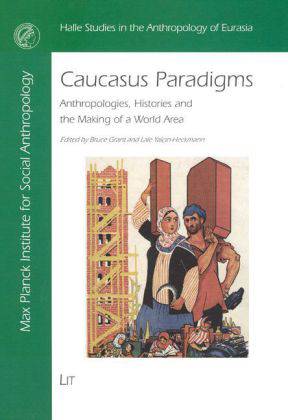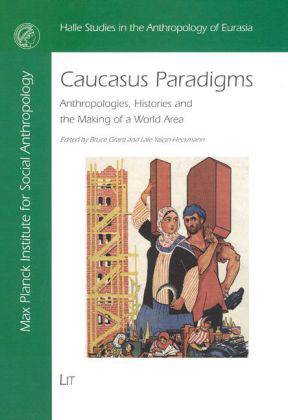
Door een staking bij bpost kan je online bestelling op dit moment iets langer onderweg zijn dan voorzien. Dringend iets nodig? Onze winkels ontvangen jou met open armen!
- Afhalen na 1 uur in een winkel met voorraad
- Gratis thuislevering in België vanaf € 30
- Ruim aanbod met 7 miljoen producten
Door een staking bij bpost kan je online bestelling op dit moment iets langer onderweg zijn dan voorzien. Dringend iets nodig? Onze winkels ontvangen jou met open armen!
- Afhalen na 1 uur in een winkel met voorraad
- Gratis thuislevering in België vanaf € 30
- Ruim aanbod met 7 miljoen producten
Zoeken
Caucasus Paradigms
Anthropologies, Histories and the Making of a World Area Volume 13
€ 29,45
+ 58 punten
Omschrijving
What does it mean to know a world area, or to be part of one, for that matter? The most prominent of "Caucasus paradigms" paint a picture of a region famous not only for its cultural, linguistic, religious, political, and economic pluralisms, but for its violence, savagery, conflict, and corruption; its nobility, hospitality, natural beauty, and severity. Such paradigms present a paradox: Despite such histories of diaspora, migration, conquest, and cohabitation, the Caucasus is most often conjured as a place of closure to those "from outside". This volume seeks to turn a longstanding handicap - the perceived "unknowability" of the Caucasus - into a theme. Bringing together a dozen specialists in anthropology, linguistics, and cultural history, it identifies patterns in how the Caucasus has figured on the world stage through both politics and scholarship. By foregrounding the particular purchases of ethnographic knowledge alongside the fine tunings of cultural histories, it invites readers to reflect on pluralism and its logics in a world area where cultural difference has far too long been seen as a root cause of violence.
Specificaties
Betrokkenen
- Uitgeverij:
Inhoud
- Aantal bladzijden:
- 328
- Taal:
- Engels
- Reeks:
- Reeksnummer:
- nr. 13
Eigenschappen
- Productcode (EAN):
- 9783825899066
- Verschijningsdatum:
- 1/03/2008
- Uitvoering:
- Paperback
- Formaat:
- Trade paperback (VS)
- Afmetingen:
- 165 mm x 235 mm
- Gewicht:
- 557 g

Alleen bij Standaard Boekhandel
+ 58 punten op je klantenkaart van Standaard Boekhandel
Beoordelingen
We publiceren alleen reviews die voldoen aan de voorwaarden voor reviews. Bekijk onze voorwaarden voor reviews.










